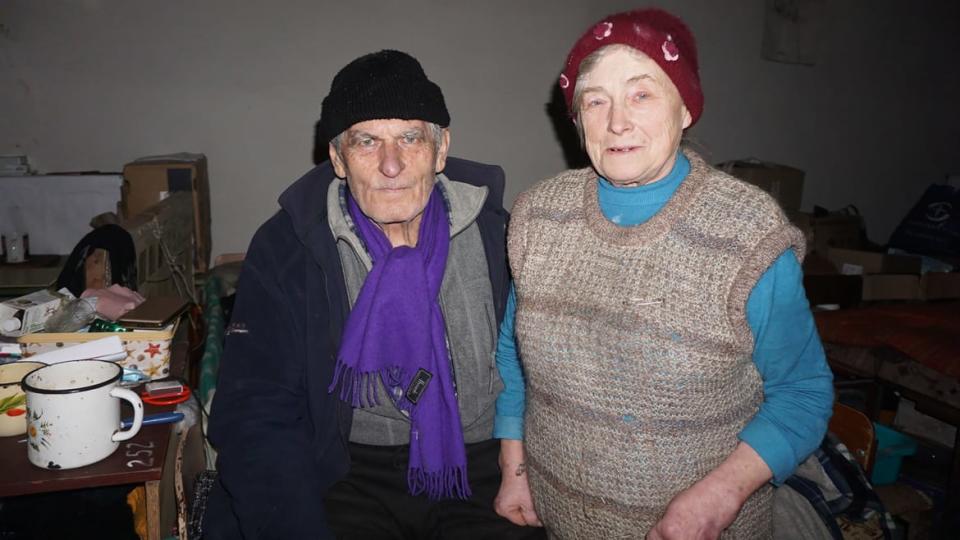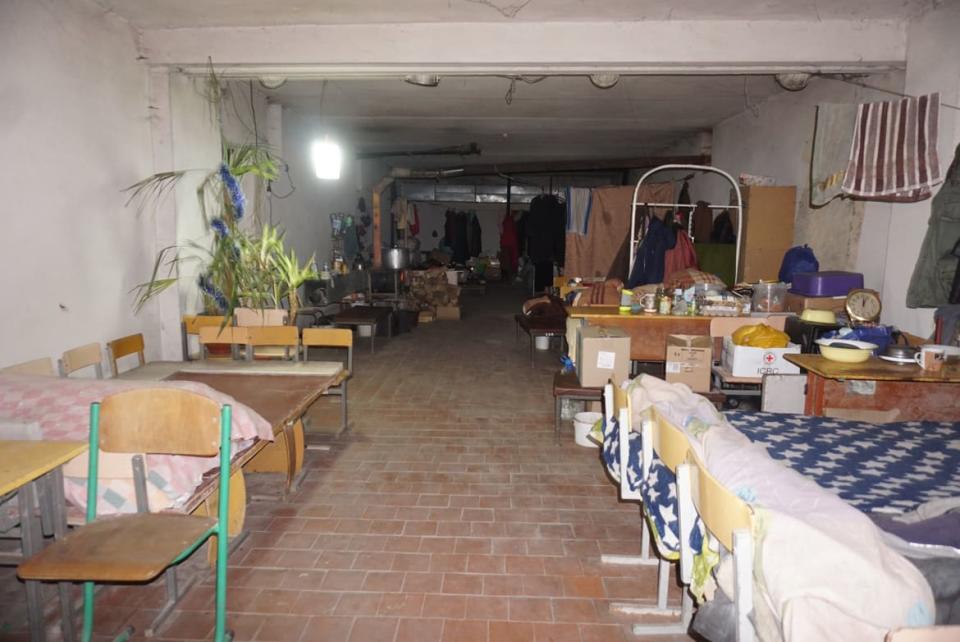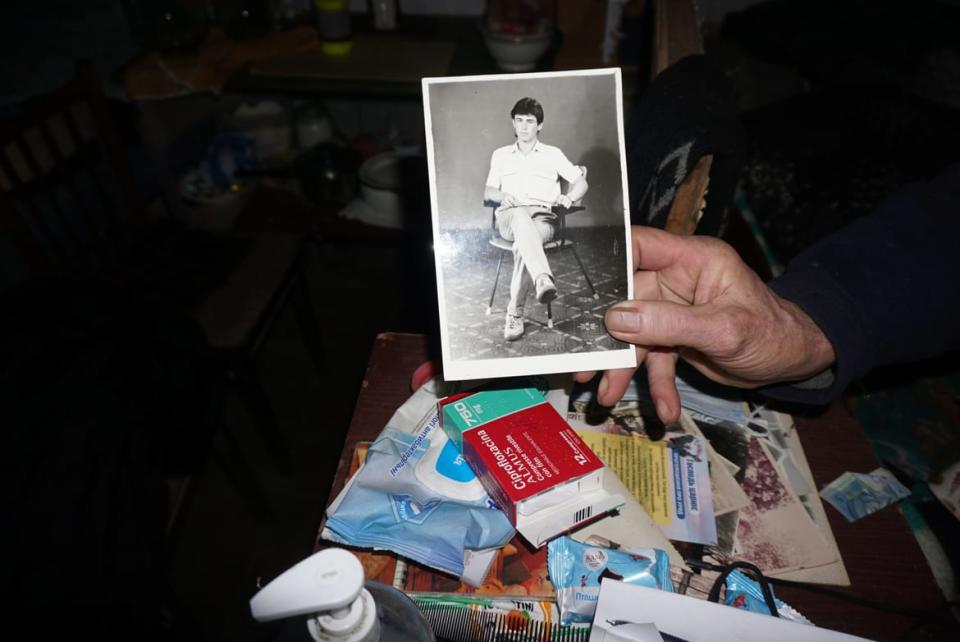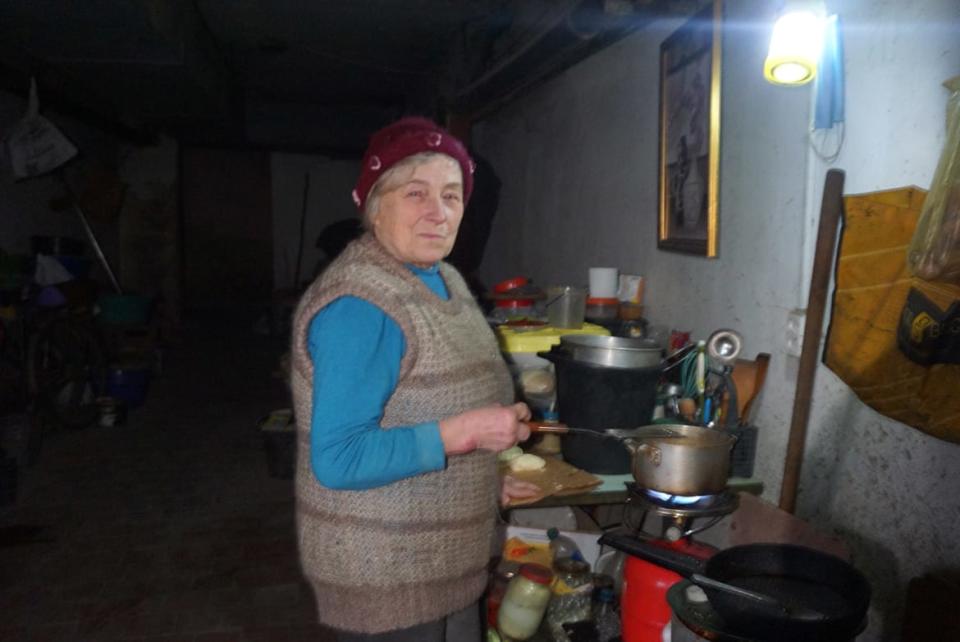Life in the Underground Commune of Horrors Created by Putin’s War

VELYKA NOVOSILKA—Residents who have remained in the small village of Velyka Novosilka in the Donetsk Oblast of Ukraine are living in an underground commune and refusing to leave, despite pleas from the police.
The village was once home to around 4,700 Ukrainians, according to Olya Semibratova, one of the volunteers who regularly deliver aid to the communes. But Russia’s attacks have turned it into a ghost town, where the remaining 304 citizens risk death by setting foot outside. In the early days of the invasion, those who remained in the village were looking for somewhere to hold out while waiting for the war to end. Early on, however, it became evident that—unlike in 2014, when Russia annexed the Crimean Peninsula in just days—there would be no quick finish.
So some sought shelter in underground havens, and over time two communes developed. At first, they were filled with around 150 people, many of them elderly citizens not wanting to leave their homes. Now only 80 people remain, in a place that was never meant to be a shelter, with no electricity, heat, or running water.
“We offer evacuation all of the time,” Ukrainian Special Forces Officer Oleksandr Marteniuk, who delivers aid to the commune from a bullet-proof van, told The Daily Beast. “Everyone says, ‘We don’t want to leave our home town, leave our homes arbitrarily,’ to leave their houses at the mercy of fate. I’m not saying to leave forever, just for a while until the situation is more or less stable, the shelling stops and everyone can return home and get on with their lives.”
Marteniuk spoke outside the first commune visited by The Daily Beast. The roar of explosions fills the air, but the dogs that the commune takes care of lap up water and beg for attention, completely unaware that they are in the center of Vladimir Putin’s war. The dogs are a welcome distraction from the backdrop of burnt-out cars and building debris.
Putin’s War Has Caused a Huge Plastic Surgery Boom in Ukraine
On the commune’s ground floor, residents cooked over a wooden stove and sat together while they ate. But the sighting of a Russian drone at one point forced everyone down into the basement’s sleeping chambers, which was dark and damp, and filled with rows of double mattresses. Asked how safe the basement is in the case of attacks on the building, Marteniuk sighed and shook his head. “For mortar arrivals, from MLRS Grad [rocket], for example, it would [withstand]. God forbid if there will be an airstrike—it won’t.”
‘Everything burned down’
When the threat of the drone cleared, Marteniuk drove to the second commune a few minutes away. It was cold and sunny outside. This, The Daily Beast is told, is the ideal time for Russia to attack, because the clear skies improve target visibility. In the case of Velyka Novosilka, there are enemy attacks every single day. Marteniuk said he has no way of knowing exactly how many, just that they are constant and deadly. The day before, a man and a woman were killed in a shrapnel attack. “They were walking down the street after the arrival of a priest,” volunteer Olya Semibratova said.
The designated sleeping area of the second commune was one large room filled with mattresses. A few personal belongings were spread out on wooden tables, which locals brought as reminders of their past lives, and sheets were hung to divide the space into individual “rooms.”
Speaking to The Daily Beast from her designated sleeping area, Svitlana said that she and her husband had lived at their home in the village until April 2022, when it “was also destroyed, there were hits, everything burned down.”

At the second commune, a man and a woman were just killed in a shrapnel attack.
After moving to Kyiv to live with their daughter, Svitlana and her husband returned and have lived in the shelter ever since. She says they returned to Velyka Novosilka “because we thought it would all be over. We hoped and came back.” But the reality of the once peaceful village is terror and death. “It’s very scary to even just go to the store, you need to run,” she said.
When asked about their ability to leave, Svitlana said, “We have nowhere to go. We are at home here, and winter has already passed. Spring has begun. Thank God we did not suffer from the cold. We installed stoves and slowly heated them.”
“Let it be hard for now. Just we want to get everything back. I really want Ukraine to win because I have a daughter in Kyiv who gave birth a month ago. And I really want to be able to meet her calmly, and my granddaughter too,” she added.
The fighting in the Donbas region of Ukraine has been relentless in the past few weeks, as the fate of Bakhmut—the town under 200 miles away from Velyka Novosilka—grows grimmer with each passing day. If Bakhmut were to fall, it would be Russia’s first victory in half a year.
“If there is an occupation, only those who will bow their heads before Russians will survive,” Semibratova said when asked what will happen to those living in the shelter if Russia starts to extend its line of terror towards the village. “The rest can be mocked, tortured, and killed for the words ‘Glory to Ukraine.’”
Each passing day at the communes comes with fears for the future—but it also strengthens relationships. “Here are our grandparents and parents,” Yuri Altabar told The Daily Beast as he sat at a table, holding up some of the countless family photos he and his wife of 50 years, Olena, took with them when they moved to the commune in July. The room is dark, lit by a few battery-operated lamps, but Yuri Altabar smiled as Olena handed him more photos to show.

Yuri Altabar holds up a picture of him as a young man.
“They are important, very important. We did not take everything but the most necessary things in our life. This is just a reminder. I was 25, and she was 20, and today I’m 74 years old.” The couple met in Donetsk city, which has been occupied by Russian forces since 2014.
Holding out
Olena and Yuri Altabar created a life in Velyka Novosilka, raising their son and buying a property that they still own. They saw the collapse of the Soviet Union together in 1991 and have watched Ukraine develop as an independent country over the past 32 years. Their family was torn apart by the 2014 invasion when soldiers occupied Donetsk, where their son lives. In September 2022, Putin illegally annexed the city, making it part of Russia. Now the parents have been separated once more from their son, this time with no way to see him.
Through the countless trials and heartbreak at the hands of Vladimir Putin, the partners lean on each other. “I didn’t love her as much as I do now. Now I don’t know how I could be without her as much as I think she does either. I kissed her maybe once a month then, but now every day,” Yuri said.
But Olena said they are crippled by the fear of leaving their town, which has caused her to miss doctors’ appointments in neighboring Dnipro, for a sickness she withheld but described as “very serious… many people were ill [with] this disease [and it] ended very badly for them.” Yuri Altabar also has diabetes, and his wife helps him manage the pain, cooking his meals, massaging his feet, and acting as a caretaker along with an emotional support rock during life in Donbas.

Olena Altabar cooks over a makeshift gas stove.
But the fear runs deeper than just never being able to return to the village they created a life in. Both of their parents are buried in the local cemetery, and Olena Altabar said if they were to leave, “Then who is going to fix the grave in the cemetery? No one will go to the cemetery.”
They also didn’t want to leave their two dogs and five cats behind, which were living at their home above ground. Each day, Olena Altabar takes a risk by returning to take care of their animals—the only family they have left in the village.
“I’m running to feed these animals. The ones that are left,” she said. “Do you understand? We are their only hope. We’re not going to leave these animals behind.”
Get the Daily Beast's biggest scoops and scandals delivered right to your inbox. Sign up now.
Stay informed and gain unlimited access to the Daily Beast's unmatched reporting. Subscribe now.

 Yahoo News
Yahoo News 